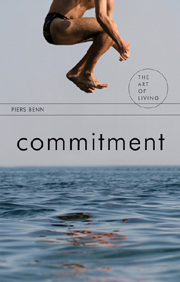3 - Work
Summary
Here is a question that has sometimes given me a sinking feeling: “So what do you do?” The question is innocent enough in itself; it is an ice-breaker, a convenient conduit from small talk to medium talk, a possible opportunity to discover common interests or values. It is a personal question, but not too personal. The answer may be embarrassing but the question is well within the bounds of polite conversation. And if I don't want to answer, I can always make use of some premeditated deflecting manoeuvre. So what is the problem?
When people have extracted from me that I am a philosopher, I have sometimes groaned inwardly at the prospect of having to explain what philosophy is, something I am not completely sure of myself. If I explain that I am writing a book on commitment, I start to imagine what the other person might be thinking about me: perhaps he or she assumes that I must have problems in that area, and, if I am lucky, will have the tact not to press the issue. I have heard philosophers exchange anecdotes about how they deal with the inevitable requests to explain themselves. Such advice can be handy in certain situations. A taxi-driver once asked me what I did for a living, and since I was not primed with a plausible evasive response, I confessed. His interest was set alight, and he began to wax lyrical about the “philosopher” Bruce Lee, the star of martial arts films. Fortunately, my journey was not a long one.
- Type
- Chapter
- Information
- Commitment , pp. 51 - 76Publisher: Acumen PublishingPrint publication year: 2011



